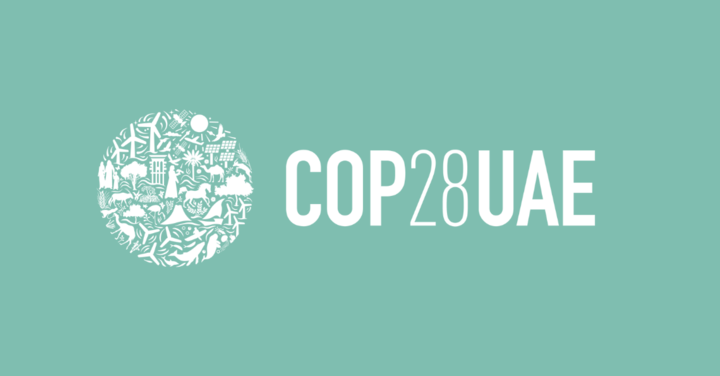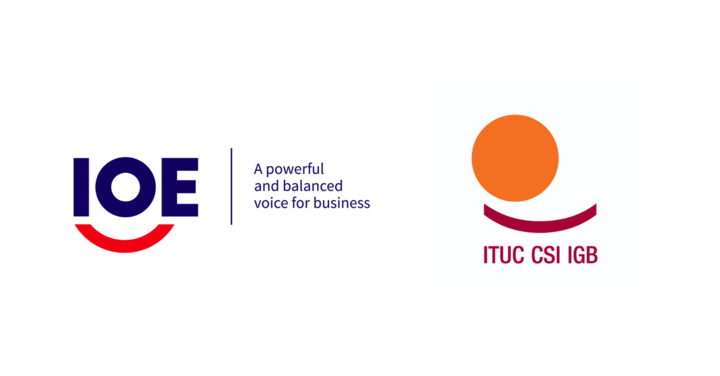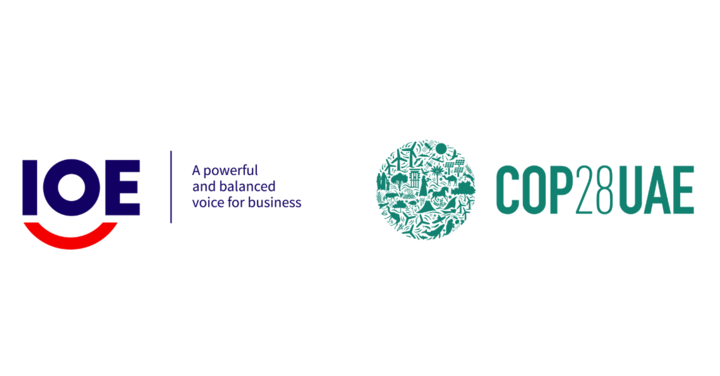IOE is committed to supporting the transition to a low-carbon global economy to limit the rise in global temperatures and avoid devastating economic and environmental consequences. IOE works with its global network to advocate for an orderly and just transition that recognises the urgency of achieving net-zero emissions and ensuring continued economic development and inclusive growth.
What is Climate Change and Just Transition?
Climate change is a long-term shift in average temperatures and weather patterns. Some of these shifts are natural, but since the 1800s, human activities have been the main driver of climate change, primarily due to the burning of fossil fuels (like coal, oil, and gas), which produces heat-trapping gases like carbon dioxide (also called greenhouse gases).
A Just Transition means ensuring efficient and coherent climate change mitigation and adaptation policies and regulations that limit labour market disruptions and job losses and support for workers and companies impacted by the transition.
Read IOE’s full report Guidance report on climate change, employment and just transitionfor a more in-depth review of these two intersecting issues.
Why are Climate Change and Just Transition relevant to business?
Business plays a crucial role in defining and implementing climate action. It employs the largest proportion of working-age people globally, drives economic growth, provides goods and services, and harnesses creativity and innovation to help solve societal challenges. If properly managed, the risks arising from climate change can be turned into opportunities, and through appropriate mitigation and adaptation policies, labour markets could be more dynamic, accessible, and sustainable.
What is IOE’s position on Climate Change and Just Transition?
IOE advocates for an orderly and just transition that ensures continued business development and inclusive economic growth as the transformation to net-zero emissions moves forward.
IOE’s efforts focus, in particular, on the impact of climate change policies and measures on employment and social conditions and helps to ensure that policymakers hear, understand, and take the business perspective into account.
IOE also monitors and raises awareness of the following key issues:
- The impact on jobs and competitiveness of climate change policies, carbon markets, emissions trading and other market-based approaches (such as taxes).
- The impact of sectoral approaches on jobs within sectors but also economy-wide.
- The adaptation challenges: jobs created or lost, re-training and skills needs, capacity building.
- The links between human rights, climate change and business.
How does IOE’s work on climate change and just transition advance the agenda for business?
- IOE has been instrumental in the drafting and adoption of the International Labour Organization’s reference document: Guidelines for a just transition towards environmentally sustainable economies and societies for all and ensured economic, and business priorities were adequately acknowledged.
- IOE is actively involved in shaping the dialogue and policy development for climate change through its official observer status and membership of the Business and Industry constituency to the UNFCCC (the organisation leading the negotiations and implementation of the Paris Agreement) as well as the United Nations Environment Programme.
- IOE created a Just Transition Task Force to facilitate the exchange of experience, establish partnerships and build capacity. Climate and employment issues are also high on IOE’s Policy Working Group on Sustainable Development agenda.
- IOE provides expert guidance to members on many critical policy issues, including business and human rights and climate change. See our review of the issue in the IOE publication Climate Change and Human Rights Implications for Business.
- IOE keeps members informed of developments, particularly regulatory, taking place during international climate negotiations. See our blog IOE@COP26for a brief overview of outcomes potentially impacting business.









